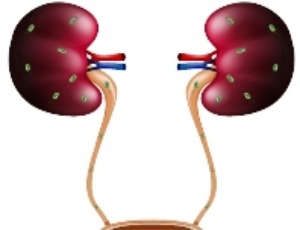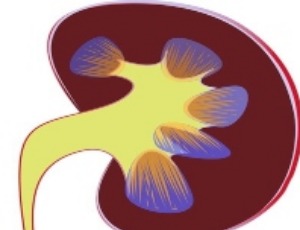Loading
Archives of Nephrology and Renal Studies
ISSN: 2771-1889


JOHN ALBERT ST. CYR
University of Minnesota
University of Minnesota, USA
Featured Article
A Case Report and Literature Review on Complications of Pediatric Maintenance Intravenous Fluids

Featured Article
Review of Renal Transplantation of Hepatitis C Viremic Donor Organs into Aviremic Recipients

Featured Article
Peritoneal Imaging may be the Last Piece of the Puzzle for Precision Evaluation of Peritoneal Function

About this Journal
Archives of Nephrology and Renal Studies is a leading scientific journal devoted to publish the latest findings on basic research and clinical practice in the field of nephrology. This open access journal serves as an interactive forum connecting nephrologists, pathophysiologists, researchers and academicians to exchange experimental findings and ground breaking clinical observations on this practice based study.
Articles
NSAID-associated Renal Injury: Mechanisms, Risks, and Safer Strategies
Non-steroidal anti-inflammatory drugs (NSAIDs) are commonly used analgesics that have a high risk of renal injury, especially in susceptible populations such as the elderly, patients with chronic kidney disease (CKD), heart failure, or those on poly pharmacy. This commentary emphasizes the pathophysiological mechanisms of NSAID-induced kidney damage, including prostaglandin inhibition, renal vasoconstriction, and interstitial nephritis—and highlights recent evidence linking NSAIDs to acute kidney injury (AKI) and CKD progression.
Factors Associated with Psychiatric Vulnerability in Patients with End-Stage Renal Disease at the Zou/Collines Departmental Hospital, Benin
Introduction: End-stage chronic kidney disease (CKD) poses a significant challenge to patients' mental health, frequently leading to anxiety, depression, and sleep disturbances. This study aimed to identify factors associated with psychiatric vulnerability among patients with end-stage renal disease at the Zou/Collines Departmental Hospital in Benin. Methods: We conducted a cross-sectional study from January to June 2024, including patients with end-stage renal disease managed in the internal medicine department.
Commentary on: “Multiple Single Cannulation Technique of Arteriovenous Fistula: A Randomised Controlled Trial”
One of the most important renal nursing procedures is the cannulation of a vascular access (VA), a procedure that is carried out on every single dialysis treatment. VA cannulation method is still a procedure that reflects local unit practices and the skill of the individual nurse. Despite the impact needling has on VA survival and patient outcome, no universal or standardized method has been proposed for cannulation.
The Role of Direct Oral Anticoagulants in Advanced Chronic Kidney Disease – Questions and Future directions
With the advent of the direct oral anticoagulants (DOACs), patients requiring anticoagulation for common conditions such as atrial fibrillation and venous thromboembolism no longer need to worry about dietary restrictions or regular monitoring of the international normalized ratio which complicated warfarin treatment.
Safety of Using Rituximab Therapy During COVID-19 Pandemic
Our modern world is facing extraordinary circumstances while passing through a serious pandemic caused by the novel coronavirus (COVID-19) which may lead to multi-organ system failure & death. Bcell depletion could compromise antiviral immunity, which makes the safety of rituximab use in the COVID19 era unclear.
Percutaneous Ablation of Localized Renal Masses: An Updated Review
Thermal ablation (TA) is increasingly used as a treatment for localized renal masses (LRMs, <4 cm) especially in older or comorbid patients. Our previous article by Mershon et al., highlighted the safety and efficacy of TA for treatment of LRMs in select patients. In this presentation, we update that work and discuss new frontiers for TA including patient selection, procedural improvements, and outcomes.
Review of Renal Transplantation of Hepatitis C Viremic Donor Organs into Aviremic Recipients
The development of direct-acting antiviral agents for the treatment of Hepatitis C (HCV) has changed the practice of treating patients with HCV. In particular, organ transplant recipients who have not previously been exposed to HCV are now able to consider receiving an organ from a donor who is infected with HCV, and anticipate effective antiviral therapy after transplantation.
Commentary on: “Multiple Single Cannulation Technique of Arteriovenous Fistula: A Randomised Controlled Trial”
One of the most important renal nursing procedures is the cannulation of a vascular access (VA), a procedure that is carried out on every single dialysis treatment. VA cannulation method is still a procedure that reflects local unit practices and the skill of the individual nurse. Despite the impact needling has on VA survival and patient outcome, no universal or standardized method has been proposed for cannulation.
Factors Associated with Psychiatric Vulnerability in Patients with End-Stage Renal Disease at the Zou/Collines Departmental Hospital, Benin
Introduction: End-stage chronic kidney disease (CKD) poses a significant challenge to patients' mental health, frequently leading to anxiety, depression, and sleep disturbances. This study aimed to identify factors associated with psychiatric vulnerability among patients with end-stage renal disease at the Zou/Collines Departmental Hospital in Benin. Methods: We conducted a cross-sectional study from January to June 2024, including patients with end-stage renal disease managed in the internal medicine department.
A Case Report and Literature Review on Complications of Pediatric Maintenance Intravenous Fluids
After establishing the new standard of care of isotonic fluids for maintenance therapy, there has not been a systematic follow-up to determine whether the goal of the switch has been achieved or whether there have been any unexpected complications with the change. This is a brief review of the history of maintenance intravenous fluids and potential complications of isotonic fluid therapy spurred by a case.
Review of Renal Transplantation of Hepatitis C Viremic Donor Organs into Aviremic Recipients
The development of direct-acting antiviral agents for the treatment of Hepatitis C (HCV) has changed the practice of treating patients with HCV. In particular, organ transplant recipients who have not previously been exposed to HCV are now able to consider receiving an organ from a donor who is infected with HCV, and anticipate effective antiviral therapy after transplantation.
The RiVUR Study Outcomes and Implications on the Management of Vesicoureteral Reflux
The Randomized intervention for Vesicoureteral Reflux (RiVUR) study was an effort by the National Institute of Health to identify the most significant question on the management of vesicoureteral reflux (VUR), i.e. Did antibiotic prophylaxis reduce the incidence of recurrent urinary tract infections (UTI) in children with VUR? During the initial phases of the RiVUR study, several similar studies were performed that seemed to indicate lack of benefit of antibiotic prophylaxis in VUR.
Commentary on: “Multiple Single Cannulation Technique of Arteriovenous Fistula: A Randomised Controlled Trial”
One of the most important renal nursing procedures is the cannulation of a vascular access (VA), a procedure that is carried out on every single dialysis treatment. VA cannulation method is still a procedure that reflects local unit practices and the skill of the individual nurse. Despite the impact needling has on VA survival and patient outcome, no universal or standardized method has been proposed for cannulation.
How Well Do Hemodialysis Patients Respond to the BNT162b2 mRNA COVID-19 Vaccine?
In January 2020, the World Health Organization (WHO) classified COVID-19 to be a Public Health Emergency of International Concern and declared it a pandemic on March 11, 2020 [1]. Over one hundred and eighty-five million people have been infected by SARS-CoV-2 and roughly four million have died worldwide so far
About Scientific Archives
Scientific Archives is a global publisher initiated with the mission of ensuring equal opportunity for accessing science to research community all over the world. Spreading research findings with great relevance to all channels without any barrier is our goal. We want to overcome the challenges of Open Access with ensured quality and transparency.
